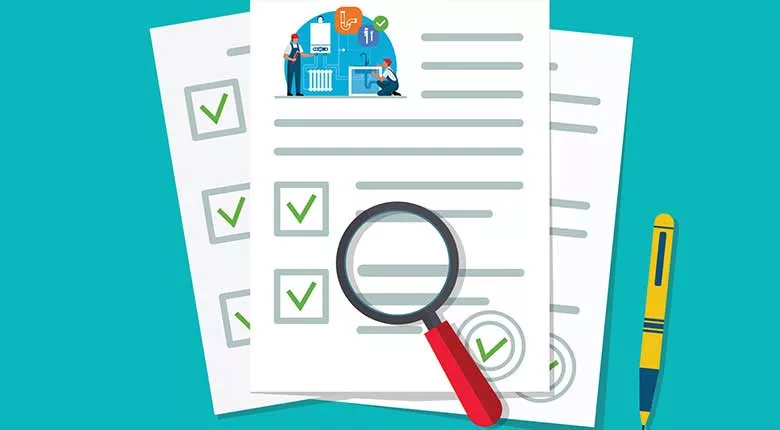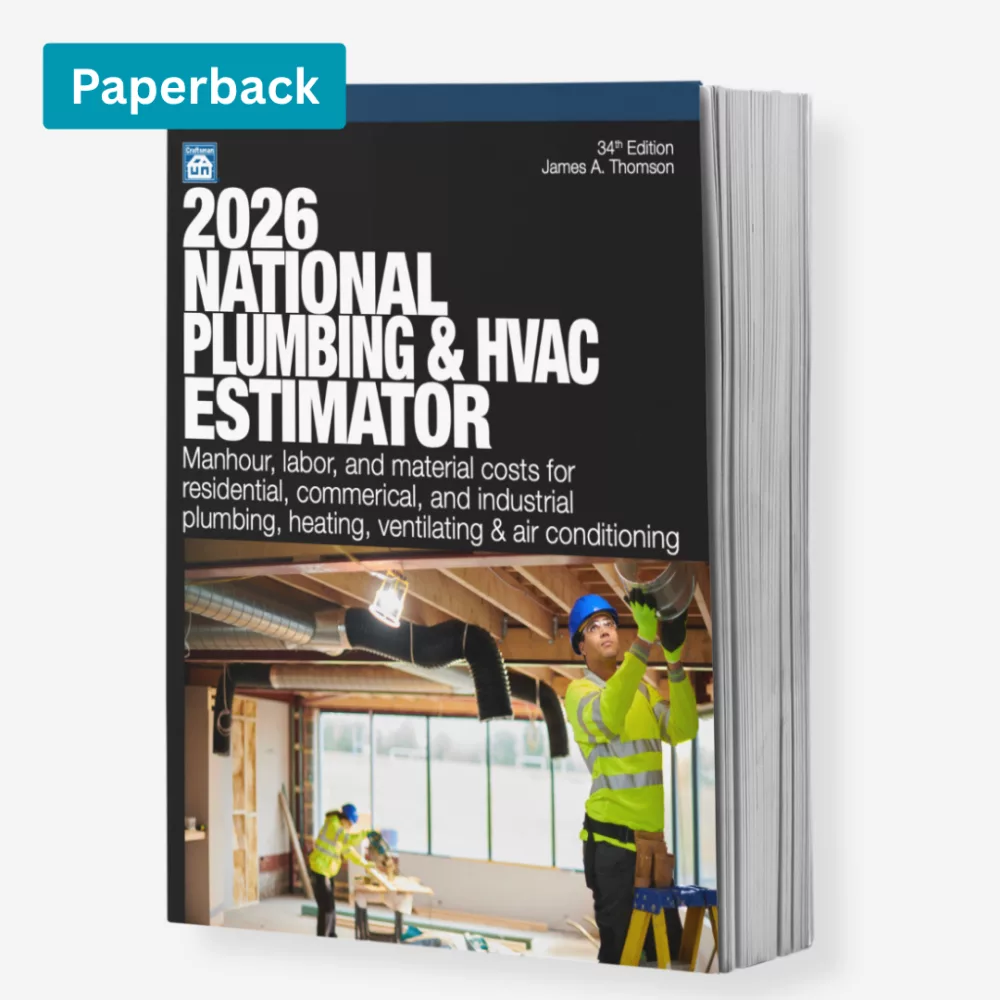Lisa Trymbiski: Licensing and bonding for plumbing and HVAC contracting businesses
Requirements for plumbing and HVAC professionals.

Images courtesy of Ihor Reshetniak / iStock / Getty Images Plus and elenabs / iStock / Getty Images Plus.
Most construction contracting businesses, including plumbing and HVAC companies, are required to secure licenses before they are legally allowed to work in many states. However, the laws and requirements for licensing vary from state to state. One common condition of obtaining a license as a plumber or HVAC technician in most states is to secure plumbing or HVAC bonds. These bonds are required by various states to protect consumers and the state from potential losses caused by an HVAC technician or plumber. Here is some general information about the process of becoming licensed and bonded for plumbing and HVAC contractors.
What is a surety bond?
Plumbing or HVAC bonds are types of surety bonds that are required as a condition of obtaining a license. These bonds protect the public against potential illegal or unethical actions by the contractors who hold them. A plumbing or HVAC bond is a binding agreement between the following three parties:
- Principal — the plumbing or HVAC professional who needs the bond as a licensing requirement;
- Surety — the bonding company that decides whether to issue the bond as a guarantee of the principal's legal compliance and ethical practice.
- Obligee — the licensing board or government agency requiring the bond.
If a plumber or HVAC technician breaks the law, fails to perform their contractual obligations, or engages in unethical conduct in their business operations, the customer who suffered harm can file a bond claim with the surety company. If the surety company determines that the claim has merit, it will pay the customer up to the maximum amount of the bond. However, the principal will have to repay the surety for anything it pays out on claims or face legal action. This is because part of the process of obtaining the bond involves signing an indemnity agreement through which the principal agrees to hold the surety harmless for any claims that might be filed.
Licensing and bonding process for plumbers
State regulations for plumbers vary, but they typically require them to complete a certain amount of training, education and work experience under the supervision of a licensed plumber before they can apply for licenses. Plumbers typically apply for specialty subcontractors' licenses in their states rather than general contractors' licenses.
When someone first goes into plumbing, they typically must complete an educational program at a technical school before working as an apprentice under the supervision of a licensed journeyman plumber. Once the apprentice has gained enough working experience, they can then apply for a journeyman plumber's license or pursue a master plumber's license. In some states, there are different types of plumber's licenses for specific specialties, including wells, irrigation, residential, or commercial plumbing.
Some state licensing boards require people to register before they begin working as apprentices under licensed journeyman plumbers or master plumbers. Most states require plumbers to obtain a journeyman plumber's license before they can conduct work through their own businesses. Even if your state doesn't require a license, your local municipal or county government might.
When a prospective plumber is at the end of their apprenticeship, they should check their state's licensing requirements and make sure they comply with them. A surety bond is a common requirement. To get a bond, you can submit a bond application to a surety company. The company will evaluate your application during underwriting to assess your degree of risk. If you have good credit, experience, and a solid reputation, you might receive a low bond premium quote. This is a percentage of the bond's face value that you will have to pay to purchase your bond.
For example, if your state requires a $15,000 plumber's bond, you won't have to pay $15,000 to get bonded. With good credit, your bond premium might be as little as 1% or $150. Once you get your bond, the surety company will provide you with a bond form showing that you have met your state's requirements so that you can get your license.
Licensing and bonding for hvac technicians
The U.S. Environmental Protection Agency (EPA) requires all HVAC technicians to obtain certification or licenses before they can legally work. Before you can get your certificate or license, you will first have to obtain an HVAC bond. Getting your HVAC bond is the final step in your licensing process, however. You must first meet the other requirements in your state.
Different states have different requirements for HVAC technicians to meet before they can get licensed. Most states require that technicians work under the supervision of licensed HVAC contractors for two to three years before they will be eligible to apply for certification or licensing. States also might have a required minimum number of training hours technicians must complete before they can be licensed.
Some state licensing boards require people to register before they begin working as apprentices under licensed journeyman plumbers or master plumbers. Most states require plumbers to obtain a journeyman plumber's license before they can conduct work through their own businesses. Even if your state doesn't require a license, your local municipal or county government might.
Once you have completed your state's training and work requirements, you will then need to look at the licensing board's requirements to make sure you meet them. You can purchase an HVAC bond from a surety company by requesting a quote and submitting an application. However, the approval of your application is not guaranteed. Surety companies want to make sure that you and your business are stable and that you have the financial capacity to cover any claims that might be filed against your bond. Since an HVAC bond operates as a type of credit extended by the bond company to you, surety companies complete an underwriting process to evaluate HVAC technicians before they will agree to approve their bond applications.
Once you secure your surety bond as a plumber or HVAC contractor, you can then complete your license application with your state. You will need to submit all of the required forms and documents, register your business with the Secretary of State's office in your jurisdiction, and purchase the right types of insurance. Once you are bonded, licensed, and insured, you will be allowed to operate your plumbing or HVAC business legally in your state. As long as you make sure you follow the law and provide good work according to the specifications of your contracts, you can grow your business and your success.
Looking for a reprint of this article?
From high-res PDFs to custom plaques, order your copy today!








